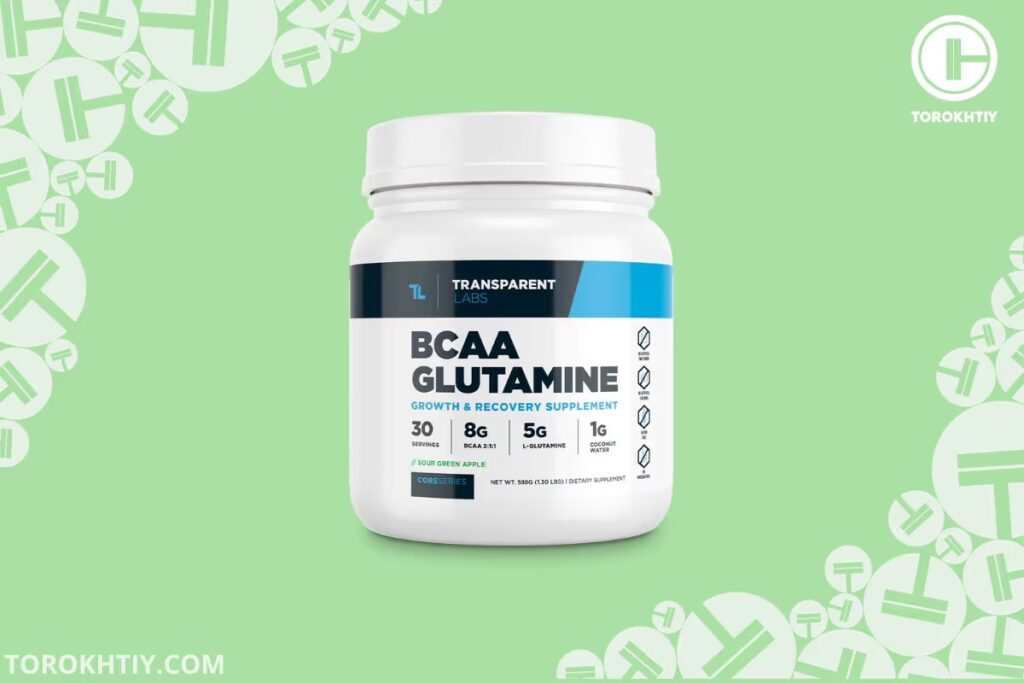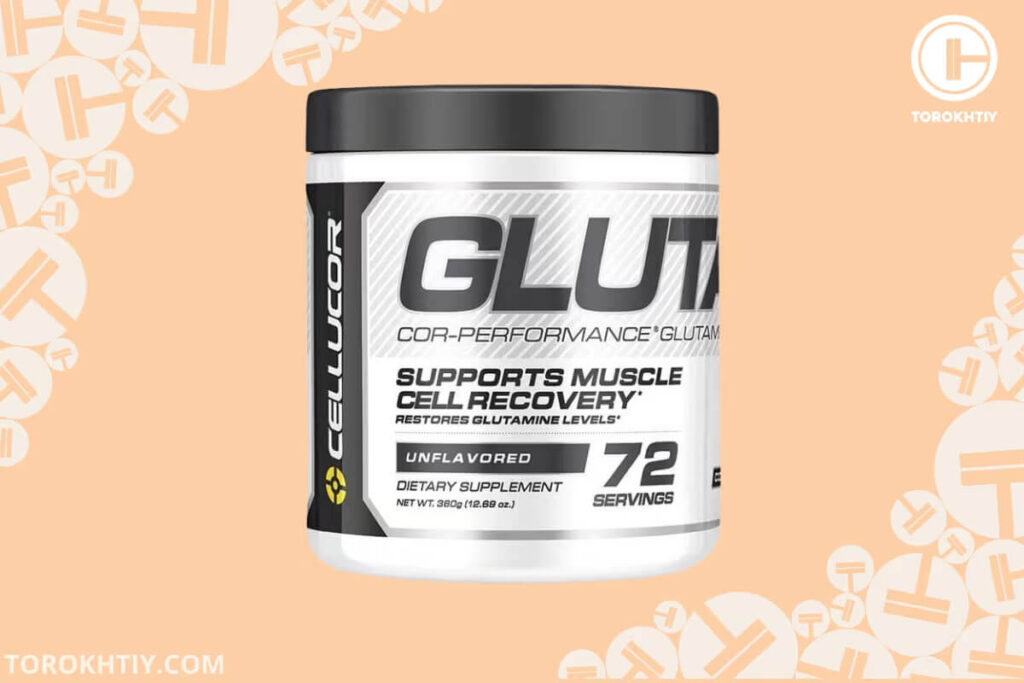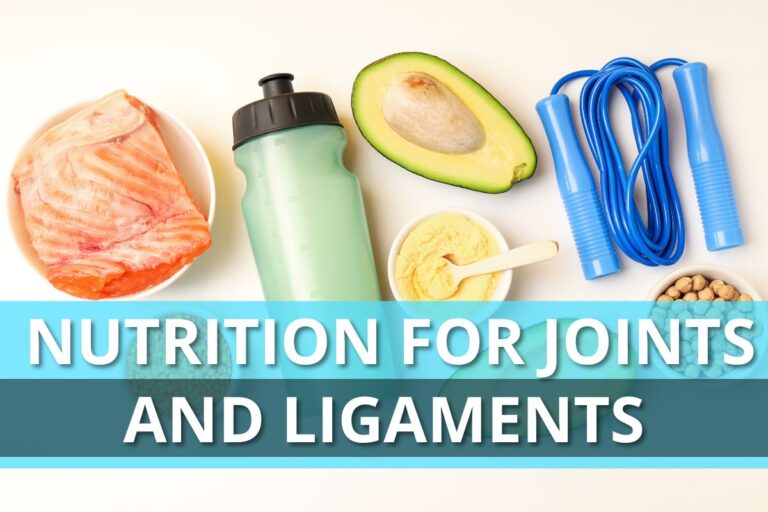BCAAs vs Glutamine: What Is the Difference?
Building muscle requires more than just lifting weights in the gym. It’s a dynamic process that needs the right nutrition, an adequate training stimulus, and enough recovery. Whilst most people tend to train well enough, less emphasis is placed on the vital rest and recovery period.
We’ve compared BCAAs vs glutamine – two popular recovery supplements that may have beneficial applications.
BCAAs vs Glutamine – BCAAs might help to build muscle and prevent muscle protein breakdown especially when dieting if you’re not consuming adequate protein. Glutamine supplementation helps to maintain immunity and gut lining, playing a preventative role in conditions such as irritable bowel syndrome and celiac disease.
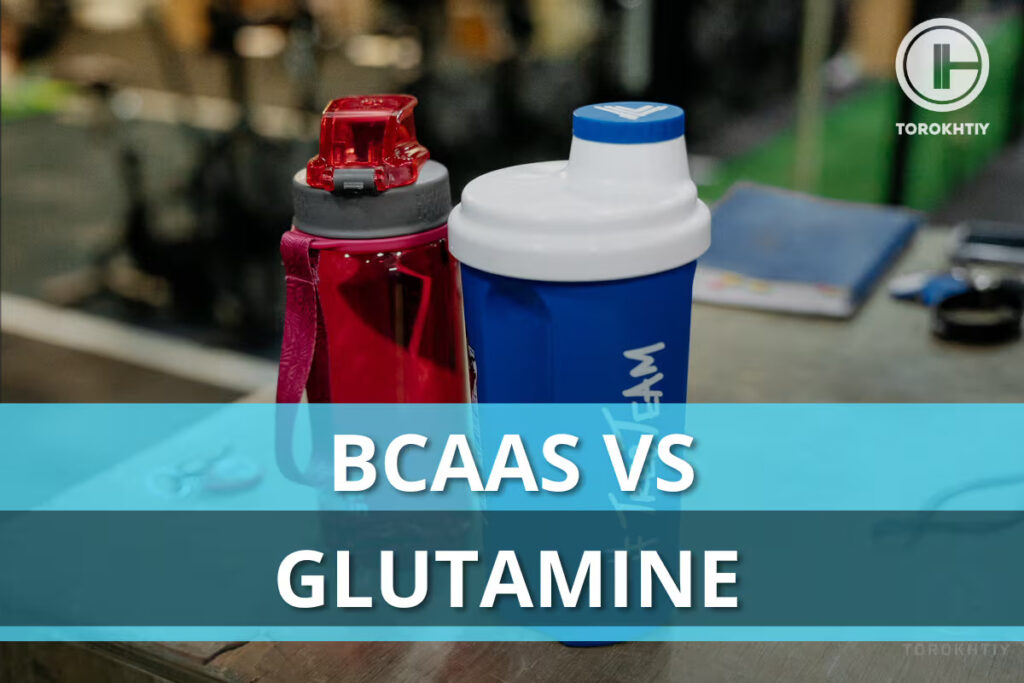
What Are Amino Acids?
Before we talk about each supplement in more detail, we need to understand more about amino acids.
Amino acids are organic compounds that join together in a sequence to make up the building blocks of protein. Each sequence contains up to 21 different amino acids that can be classified into three groups:
Non-Essential – Six amino acids are considered non-essential. This means that you don’t need to supplement them as your body can produce them.
Conditionally Essential – Another six amino acids are conditionally essential. This means that your body can make them but you may still need to supplement in certain conditions.
Essential – Nine amino acids are considered essential. Your body can’t make these, meaning that you have to get them from food.
BCAAs and glutamine are both isolated amino acids that can be classified in one of these three categories. Let’s take a look in more detail:

What Are BCAAs?
BCAAs or branched chain amino acids are considered essential amino acids meaning you need to get them through your diet or as a supplement.
They are comprised of three amino acids which are:
- Leucine
- Isoleucine
- Valine
These three amino acids are known as branched because they are the only ones that have a side chain that forms a branch. Out of the three, leucine is thought to have the most important role in muscle building.
BCAAs make up approximately 35-40% of the essential amino acids found in most mammals’ bodies. They are metabolized directly in the muscle which is one of the main reasons why they are seen as an important fuel source for muscle processes such as growth and recovery.
Alongside roles in the muscles, BCAAs may help to regulate blood sugar and lower your rating of perceived exertion (RPE) during high-intensity exercise when combined with essential amino acids
When daily protein intake is sufficient, the use of BCAAs isn’t necessary. Compared to whey protein, the use of BCAAs doesn’t provide any added benefits, with overall daily protein intake the most important factor.
What Is Glutamine?
Glutamine is a conditionally essential amino acid which means it may be needed by your body in rare instances of disease where your body can’t produce enough.
However, under normal circumstances, your body produces enough to satisfy its requirements as long as overall daily protein targets are met. When supplementing glutamine, up to 90% of it doesn’t reach the bloodstream as most is used in the guy or excreted with urine.
Glutamine is the most abundant amino acid in the human body, accounting for approximately 50-60% of all the amino acids. This is because it’s involved in multiple physiological processes that are needed to maintain normal function.
Alongside helping with protein synthesis, glutamine is thought to have essential roles in our immune system and intestinal health.
It exists in two forms – L-glutamine and D-glutamine. They are very similar but with slightly different molecular structures. L-glutamine is the most important form and also the name used by most supplement brands.
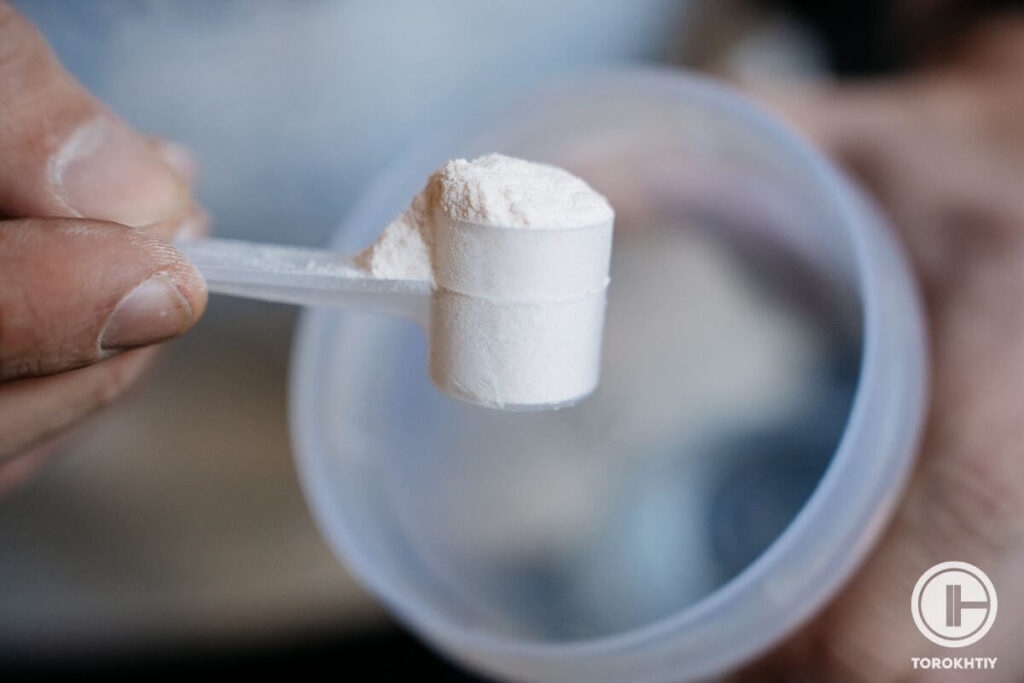
BCAAs VS Glutamine
Whilst both are considered amino acids, the molecular differences between BCAAs and glutamine change their mechanisms and therefore suitable uses. Here are the main differences between glutamine vs BCAAs:Whilst both are considered amino acids, the molecular differences between BCAAs and glutamine change their mechanisms and therefore suitable uses. Here are the main differences between glutamine vs BCAAs:
1. Scientific Backing
According to the International Society of Sports Nutrition (ISSN), supplements are classified into three categories:
- Strong Evidence
- Mixed Evidence
- Little/ No Evidence
Both supplements have a slightly mixed reputation when it comes to the amount of proven benefits shown in scientific literature.
BCAAs have been placed in the mixed evidence category meaning that some studies show benefits whilst others show none at all. BCAAs may be useful in certain situations which I’ll explain below.
Glutamine has been put in the little or no evidence category meaning that it most likely doesn’t have any effects on markers of performance.
2. Uses
BCAAs can be useful in certain situations where overall protein intake isn’t sufficient. If you consume an adequate diet, supplementation probably isn’t needed.
Glutamine can help with immunity and improve gut barrier function so may be used as a preventative supplement for overall health and well-being.
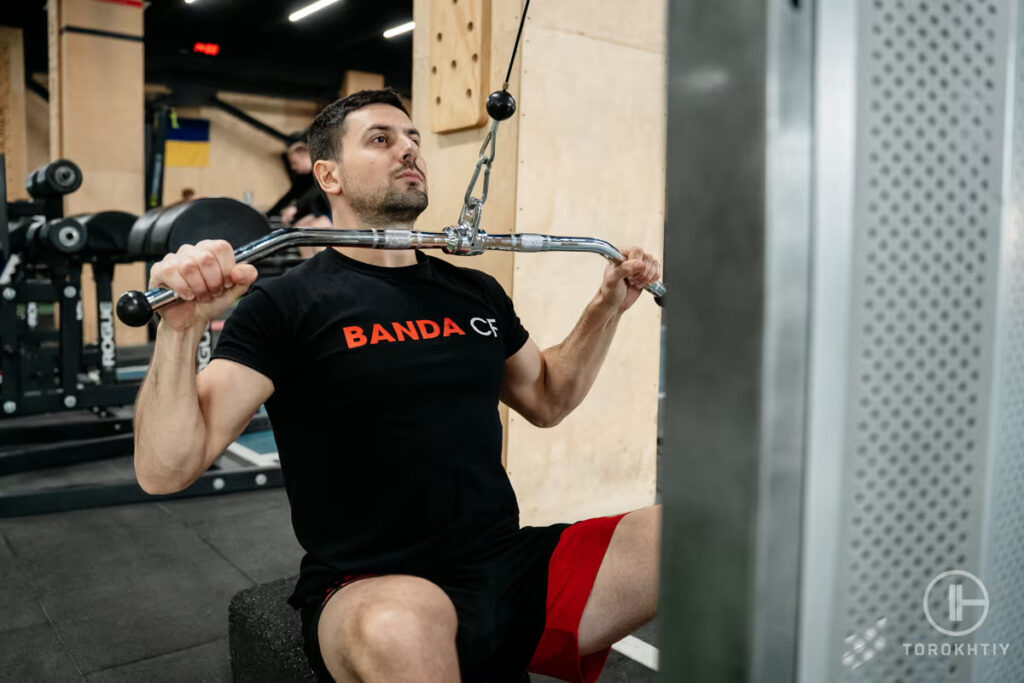
BCAAs VS Glutamine: Summary
Both supplements have slightly mixed reputations when it comes to scientific literature but use of each may be warranted in specific situations.
| Criterias | Branched Chain Amino Acids (BCAAs) | Glutamine |
|---|---|---|
| Composition | Essential amino acids – Leucine, isoleucine, and valine | Conditionally essential – L-glutamine and D-glutamine |
| Scientific Backing | Mixed Evidence – May have applications in specific situations | Little Evidence – May have applications in specific situations |
| Weight Loss Applications | Acute reductions in muscle protein breakdown | Changes in gut microbiome and gut barrier protection |
| Recovery Applications | Decreased DOMS shown in some studies – Possible applications during dieting or high-frequency exercise | Improvements in immunity may help to to better manage aspects of recovery |
| Muscle Gain Applications | Leucine activates MPS which promotes muscle gain – May be better when combined with other EAAs | Shown to have no effect on muscle mass when compared to a placebo. |
1. Pros/Cons Of BCAAs
Positives:
Could be better:
2. Pros/Cons Of Glutamine
Positives:
Could be better:
BCAAs VS Glutamine: When To Use Each
Both BCAAs and glutamine seem to have applications in specific situations. Here’s when you should take each one according to your goals:
1. For Weight Loss
When losing weight, muscle protein breakdown might increase as your body can look for alternative energy sources. It can also increase during chronic infection or illness and as part of the aging process.
BCAAs have been shown to have some effects on the rate of muscle protein breakdown.
It’s important to note that overall protein intake is a much more important factor rather than BCAA intake alone, with a number of added benefits, especially when you’re trying to lose fat on a small calorie deficit and want to keep as much muscle mass as possible 🙂
Glutamine has been shown in some studies to change the composition of your gut microbiome which is important for health and weight management. It may also protect against inflammation and have immunostimulatory effects.
Glutamine improves intestinal health by reinforcing the gut barrier, preventing harmful toxins from passing through. This may help to protect against certain diseases including irritable bowel syndrome, celiac disease, and infectious enterocolitis.
BCAAs may help reduce sarcopenia in older populations whilst glutamine may have weight loss applications by altering the gut microbiome and gut barrier.
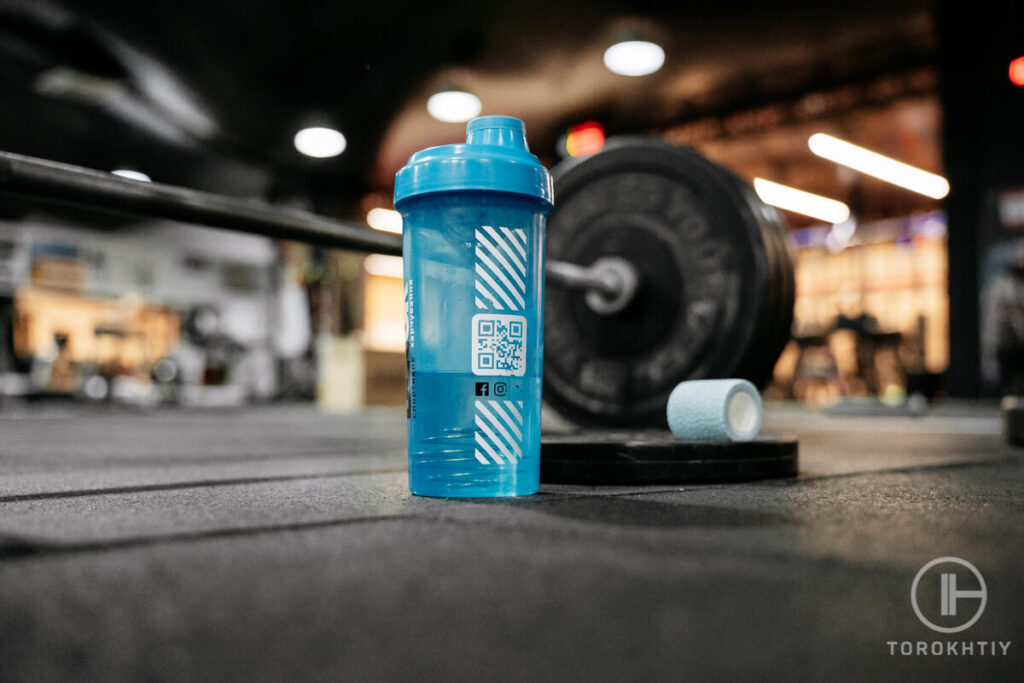
2. For Recovery
Improved recovery seems to be where both supplements may offer the most promise, especially if you are dieting or performing multiple exercise sessions in a short period.
BCAAs have been shown to have promising effects on muscle recovery, reducing protein breakdown and the severity of DOMS following supplementation. Supplementing with them may help to speed up recovery time in certain situations.
Supplementing glutamine may help to aspects of recovery through improvement in immunity and gut health.
Both BCAAs and glutamine seem to have some recovery applications during certain situations. For a healthy athlete/person with sufficient protein intake, the use of BCAA and L-Glutamine most likely won’t produce significant outcomes.
Due to the low evidence base, options such as creatine, whey protein, and L-Carnitine L-Tartrate provide better ways to improve performance, muscle growth and promote recovery.
3. For Muscle Gain
One of the most popular uses of BCAAs is to promote muscle gain. Leucine has been shown to activate a pathway that helps with muscle protein synthesis which is the main purported mechanism.
Whilst some research has shown increases in MPS with a BCAA drink, a whey protein shake containing a similar amount of BCAAs seems to be far superior in studies suggesting a protein source with a full amino acid profile is the better option.
Glutamine helps with protein synthesis but supplementation has been shown to have no effect on muscle mass when compared to a placebo.
BCAAs may help if you can’t consume a complete protein source regularly such as when you’re dieting or heavily exercising but offer little benefits on top of this.
BCAAs We Recommend – Transparent Labs BCAA Glutamine
The Transparent Labs BCAA Glutamine powder is formulated using a 2:1:1 ratio of leucine, isoleucine, and valine. On top of this, it contains L-glutamine and coconut water extract to give you a versatile supplement that helps support muscle protein synthesis and reduce muscle fatigue.

Transparent labs have sweetened the BCAA Glutamine powder with stevia and included a full ingredient breakdown on the label. It’s free from artificial colorings and preservatives and comes in four flavors.
Glutamine We Recommend – Cellucor Glutamine Powder
The Cellucor Glutamine powder uses COR-Performance glutamine that helps to lower your stress levels and reduce muscle protein breakdown following a bout of exercise.
Each 5-gram serving contains zero calories making it perfect to add to your post-workout shake if you are looking for a clean source of glutamine that can help with recovery. It offers excellent value for money, with 72 servings in each container.
FAQ
Which Is Better, Glutamine Or BCAAs?
BCAAs and glutamine may have applications in certain situations as discussed above but aren’t needed if a good diet is consumed. Which one is a better supplement depends on your diet and training goals.
Should I Take Glutamine And BCAAs?
The best supplement to take out of BCAAs and glutamine depends on your overall workout goals and general lifestyle.
Supplementing with BCAAs can help with recovery and DOMS, when daily protein intake is insufficient. If you are vegetarian or vegan, usage may be warranted. Glutamine can help with overall immunity and gut health. Both can also be taken together.
Is It Better To Take Glutamine Or BCAAs After A Workout?
Following an intense workout, the use of a BCAA supplement may be warranted to help with delayed onset muscle soreness when overall daily protein intake isn’t sufficient. BCAAs work best tho when taken with other EAAs.
BCAAs can be taken during and after a workout, with possible applications in helping with muscle building and repair. BCAAs may only be useful in certain situations such as a dieting phase or for ultra-endurance athletes to drink alongside carbohydrates and electrolytes.
Glutamine would be the better option post workout but both can be taken together if desired.
Conclusion
Amino acids are the building blocks of protein that are essential for muscle growth and repair. BCAAs and glutamine and both amino acids with different roles in muscle recovery and health.
When considering if to take l glutamine or BCAAs, both supplements seem to have some uses. Glutamine may be warranted for immunity and gut health when you are sick whilst BCAAs may provide benefits for vegetarian/vegan athletes when deficient or ultra-endurance athletes during workout.
Both lack major scientific backing for most alleged benefits, with more research needed to prove the functional applications for athletes.
Have you taken BCAAs or l glutamine before? What about BCAAs and glutamine together? Let me know about your experiences below!
Also read:
- Best Electrolytes for Muscle Cramps
- Best Electrolytes for Runners
- Best Electrolyte Supplement for Keto
- Best Unflavored Electrolytes
- Eaas or Bcaas
- Beta Alanine vs Bcaa
- Best Nac Supplement
- Best EAA Supplement
- Best Amino Acid Supplements
References:
- Michael Neinast, “Branched Chain Amino Acids” NCBI, https://www.ncbi.nlm.nih.gov/pmc/articles/PMC6536377/ (2018 Nov 28)
- Zachary Bloomgarden, “Diabetes and branched-chain amino acids: What is the link?” NCBI, https://pubmed.ncbi.nlm.nih.gov/29369529/ (2018 Feb 13)
- Gina Falavigna, “Effects of diets supplemented with branched-chain amino acids on the performance and fatigue mechanisms of rats submitted to prolonged physical exercise” NCBI, https://pubmed.ncbi.nlm.nih.gov/23201847/ (2012 Nov 16)
- Simone Perna, “The Role of Glutamine in the Complex Interaction between Gut Microbiota and Health” NCBI, https://www.ncbi.nlm.nih.gov/pmc/articles/PMC6834172/ (2019 Oct 22)
- L M Castell, “The effects of oral glutamine supplementation on athletes after prolonged, exhaustive exercise” NCBI, https://pubmed.ncbi.nlm.nih.gov/9263279/ (1997 Jul-Aug)
- RadhaKrishna Rao, “Role of Glutamine in Protection of Intestinal Epithelial Tight Junctions” NCBI, https://www.ncbi.nlm.nih.gov/pmc/articles/PMC4369670/ (2011 Aug 22)
- Samira Rastgoo, “Glutamine Supplementation Enhances the Effects of a Low FODMAP Diet in Irritable Bowel Syndrome Management” NCBI, https://www.ncbi.nlm.nih.gov/pmc/articles/PMC8716871/ (2021 Dec 16)
- Alexandre Fouré, “Is Branched-Chain Amino Acids Supplementation an Efficient Nutritional Strategy to Alleviate Skeletal Muscle Damage?” NCBI, https://pubmed.ncbi.nlm.nih.gov/28934166/ (2017 Sep 21)
- Sarah R Jackman, “Branched-Chain Amino Acid Ingestion Stimulates Muscle Myofibrillar Protein Synthesis following Resistance Exercise in Humans” NCBI, https://pubmed.ncbi.nlm.nih.gov/28638350/ (2017 Jun 7)
- Kevin D Tipton, “Stimulation of muscle anabolism by resistance exercise and ingestion of leucine plus protein” NCBI, https://pubmed.ncbi.nlm.nih.gov/19370045/ (2009 Apr)
Why Trust Us?
With over 20 years in Olympic Weightlifting, our team does its best to provide the audience with ultimate support and meet the needs and requirements of advanced athletes and professional lifters, as well as people who strive to open new opportunities and develop their physical capabilities with us.
By trusting the recommendations of our certified experts in coaching, nutrition, dietology, and sports training programming, as well as scientific consultants, and physiotherapists, we provide you with thorough, well-considered, and scientifically proven content. All the information given in the articles concerning workout programming, separate exercises, and athletic performance, in general, is based on verified data. We ensure that you can rely on our professionals’ pieces of advice and recommendations that can be treated as personalized ones which will benefit you and fully meet your needs.
The product testing process is described in more detail here
Author: Jacek Szymanowski
Certified Nutritionist,
M.Sc.Eng. Biotechnology
Performance Architect,
Strength and Conditioning Specialist
With over 30 years of fighting experience, specialization in nutrition coaching for athletes, and expertise in metabolic health and dietary strategies, Jacek offers a comprehensive approach to optimizing your performance and well-being. Backed by a Master of Science degree in Biotechnology, Jacek remains at the forefront of scientific advancements, ensuring that his coaching is always evidence-based and up-to-date.

